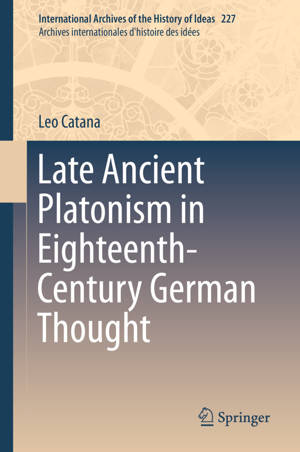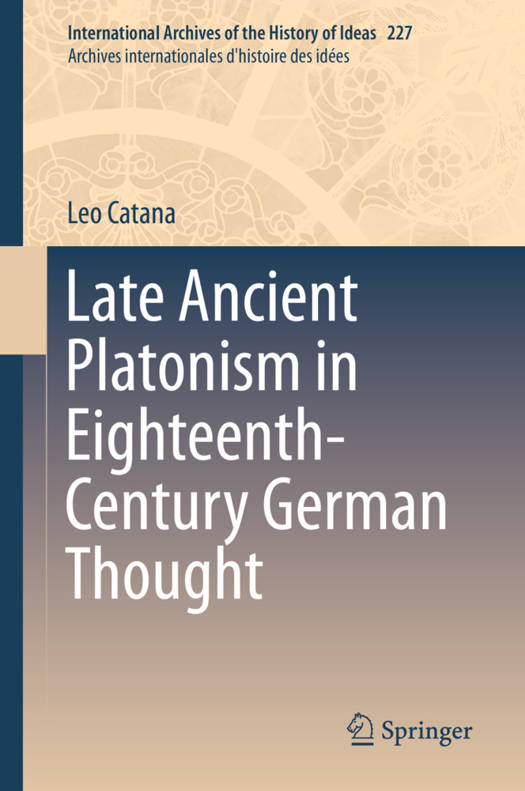
- Afhalen na 1 uur in een winkel met voorraad
- In januari gratis thuislevering in België
- Ruim aanbod met 7 miljoen producten
- Afhalen na 1 uur in een winkel met voorraad
- In januari gratis thuislevering in België
- Ruim aanbod met 7 miljoen producten
Late Ancient Platonism in Eighteenth-Century German Thought
Leo CatanaOmschrijving
This work synthesizes work previously published in leading journals in the field into a coherent narrative that has a distinctive focus on Germany while also being aware of a broader European dimension. It argues that the German Lutheran Christoph August Heumann (1681-1764) marginalized the biographical approach to past philosophy and paved the way for the German Lutheran Johann Jacob Brucker's (1696-1770) influential method for the writing of past philosophy, centred on depersonalised and abstract systems of philosophy. The work offers an authoritative and engaging account of how late ancient Platonism, Plotinus in particular, was interpreted in eighteenth-century Germany according to these new precepts. Moreover, it reveals the Lutheran religious assumptions of this new approach to past philosophy, which underpinned the works of Heumann and Brucker, but also influential reviews that rejected the English Plato translator Thomas Taylor (1758-1835) and his understanding and evaluation of late ancient Platonism.
Specificaties
Betrokkenen
- Auteur(s):
- Uitgeverij:
Inhoud
- Aantal bladzijden:
- 175
- Taal:
- Engels
- Reeks:
- Reeksnummer:
- nr. 227
Eigenschappen
- Productcode (EAN):
- 9783030205102
- Verschijningsdatum:
- 9/10/2019
- Uitvoering:
- Hardcover
- Formaat:
- Genaaid
- Afmetingen:
- 156 mm x 234 mm
- Gewicht:
- 439 g

Alleen bij Standaard Boekhandel
Beoordelingen
We publiceren alleen reviews die voldoen aan de voorwaarden voor reviews. Bekijk onze voorwaarden voor reviews.









